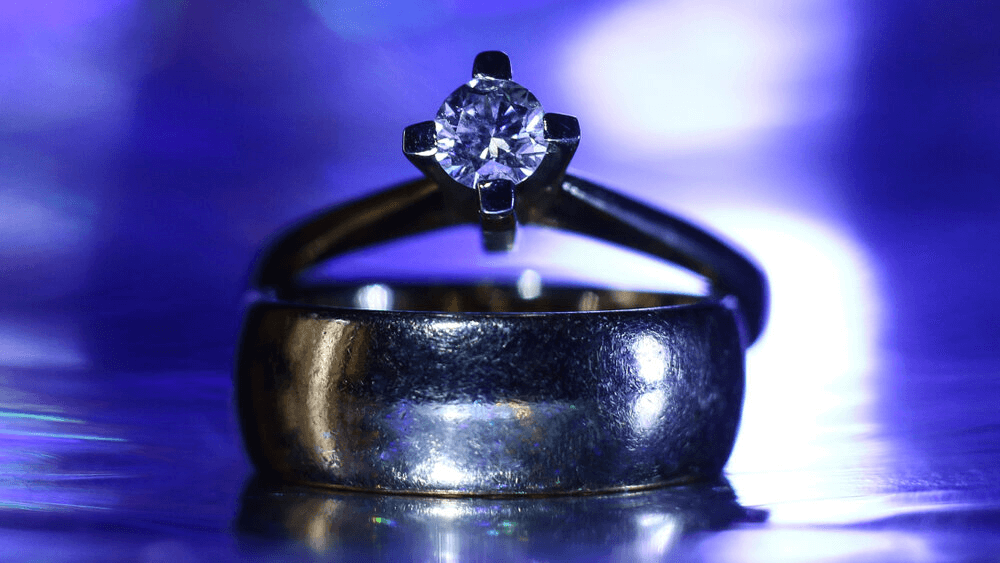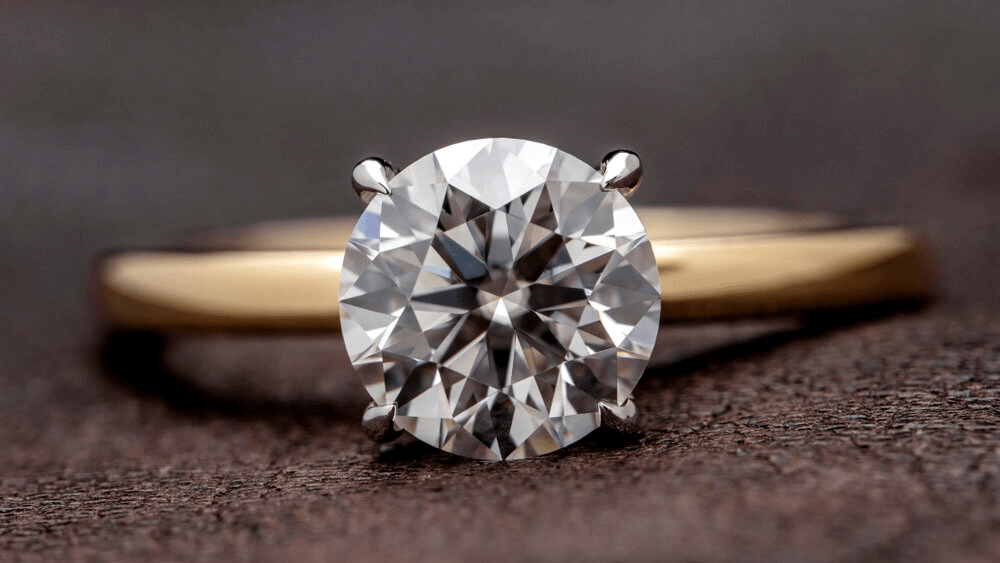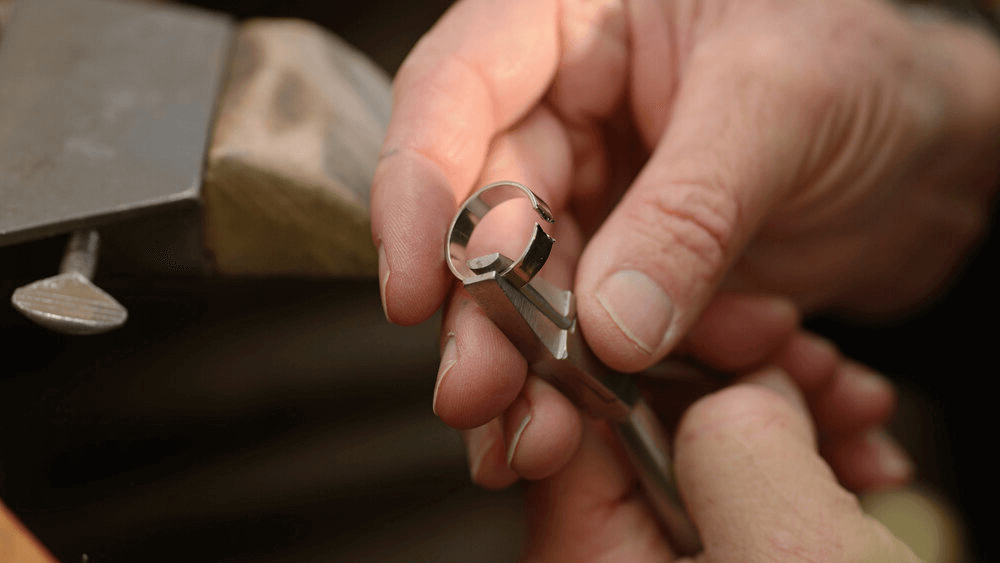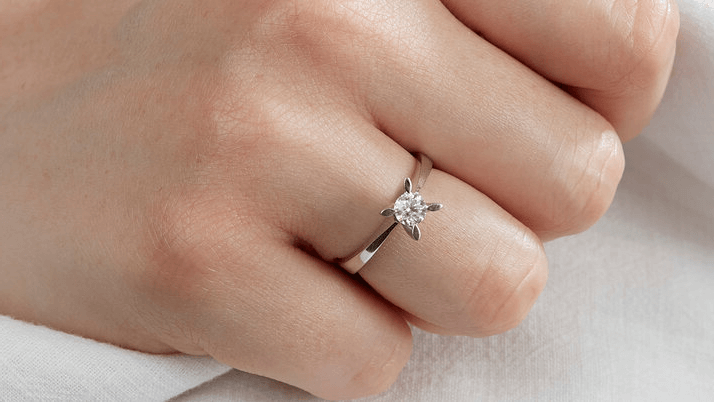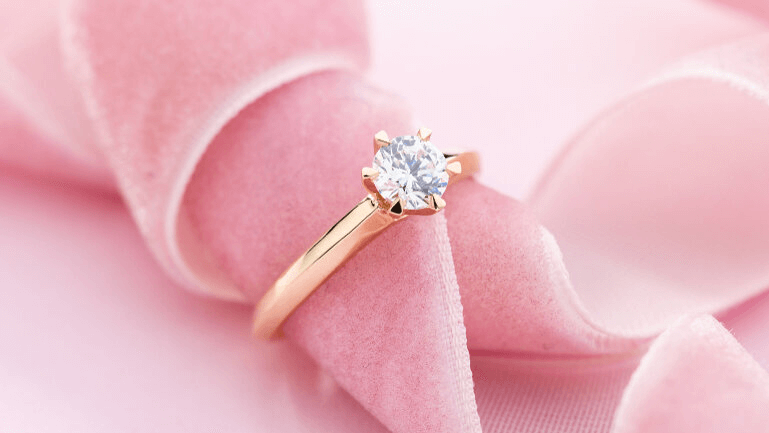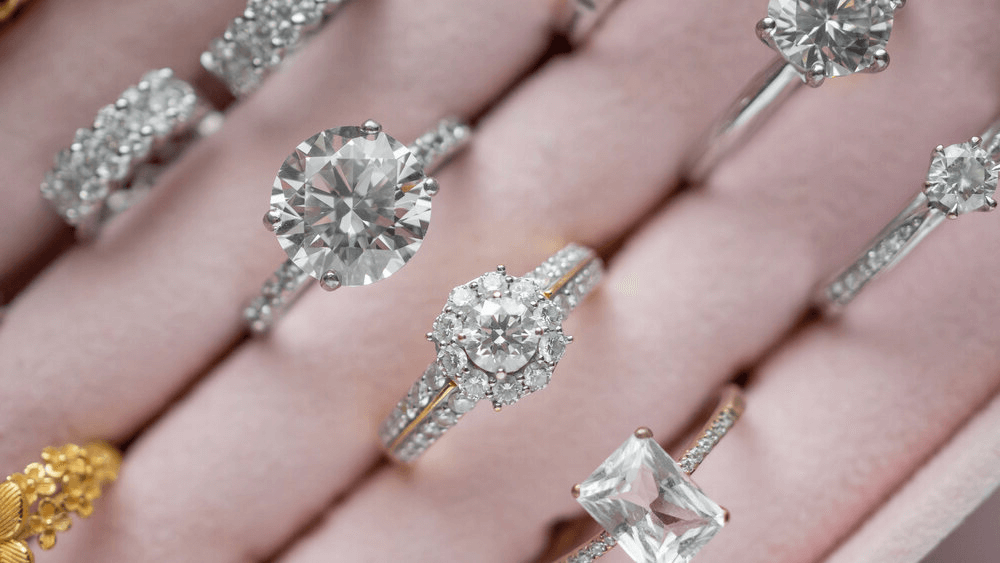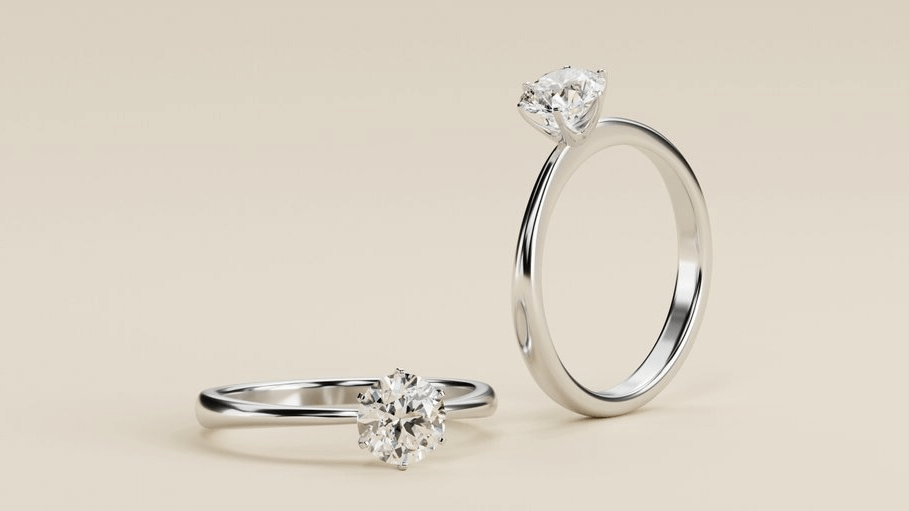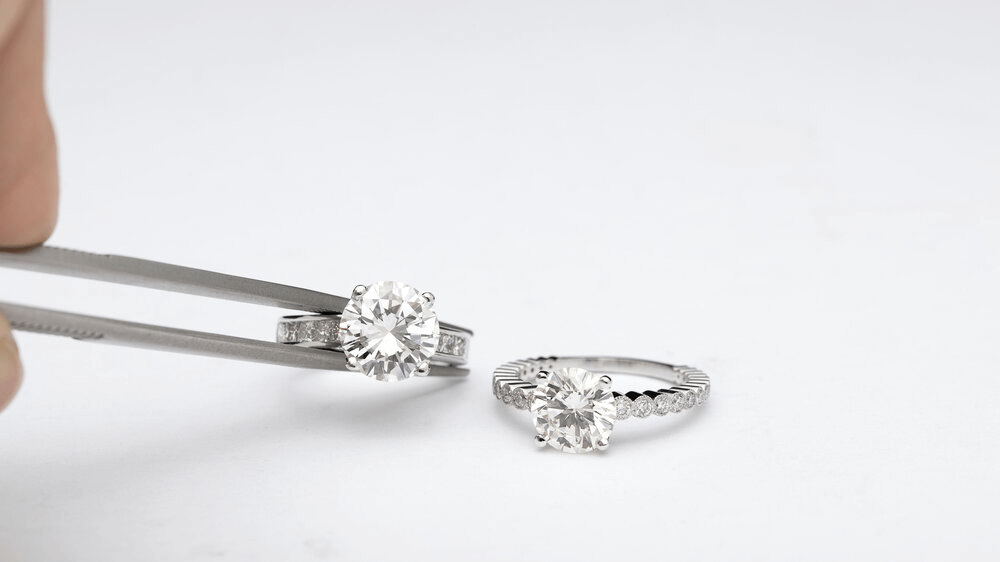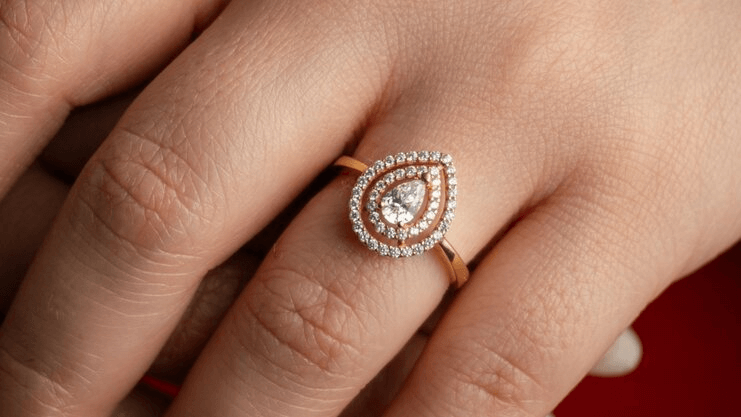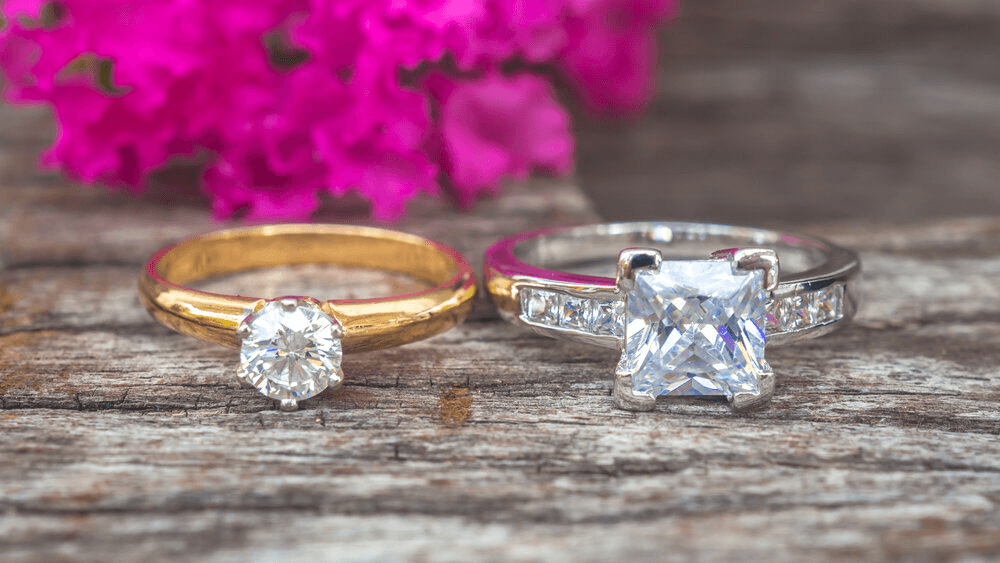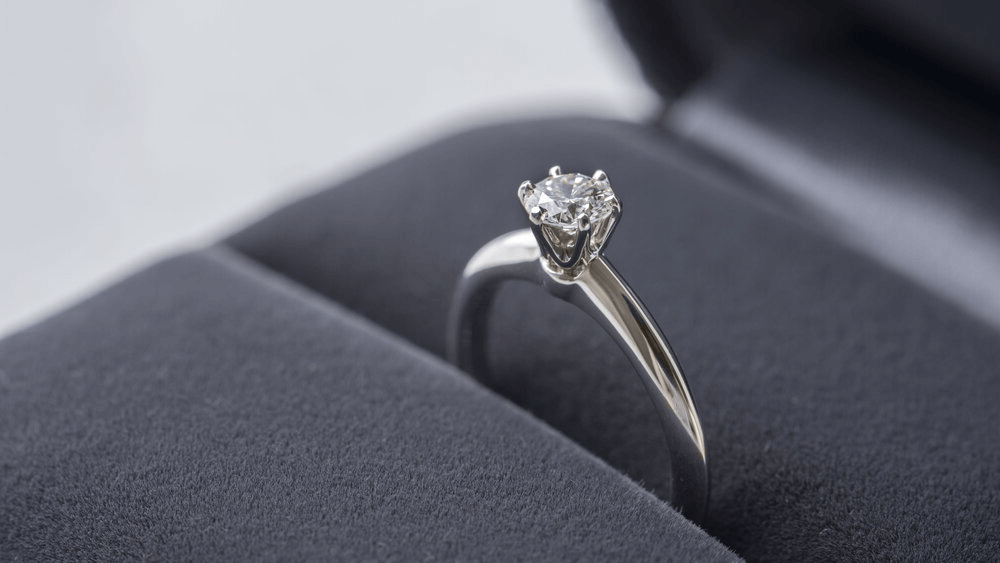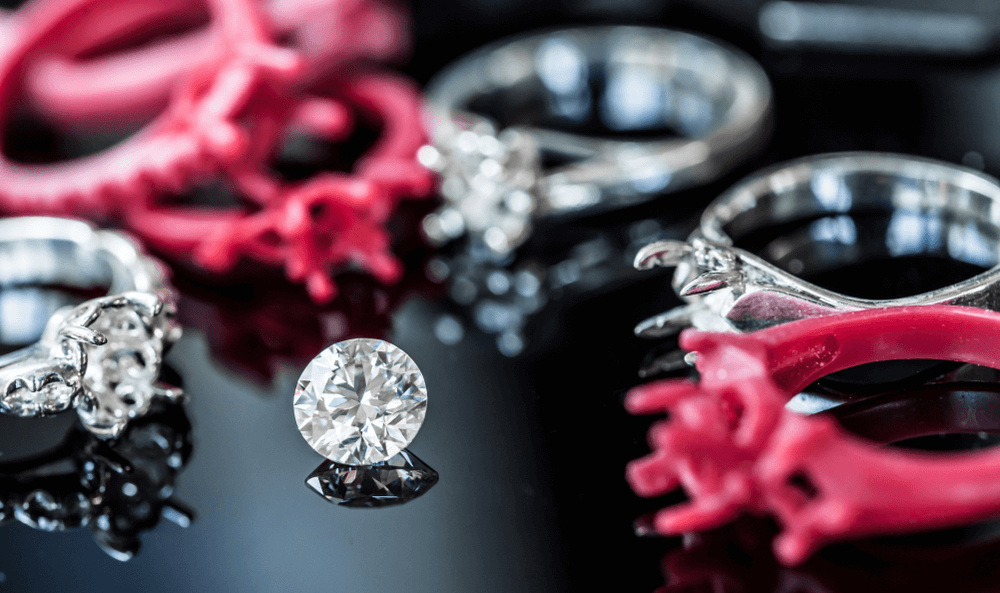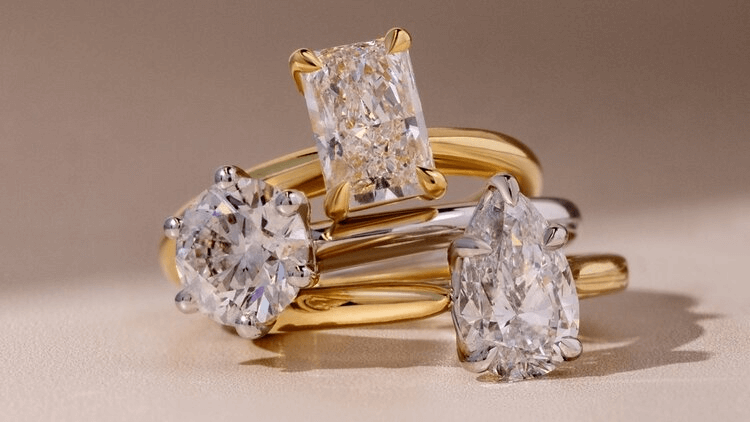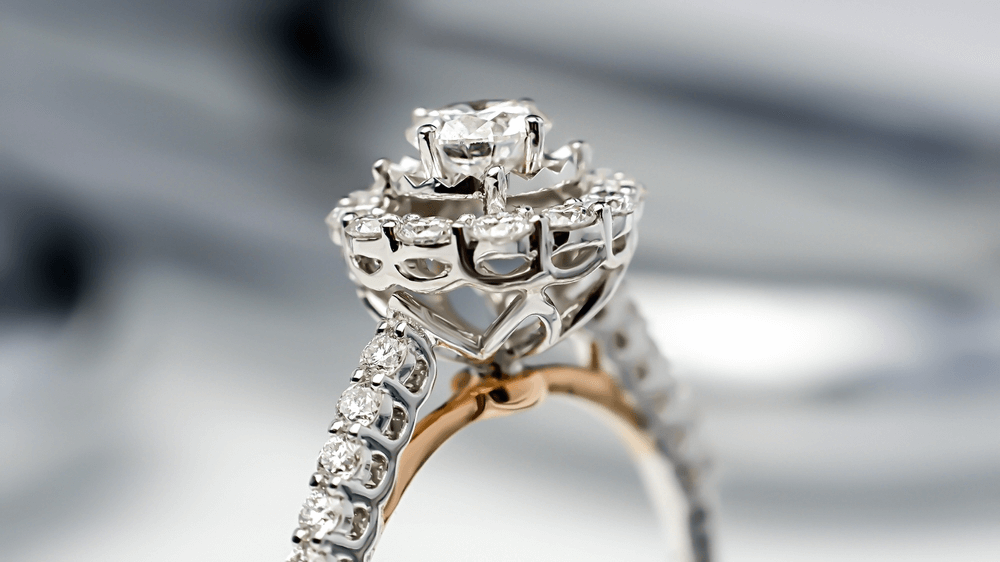The Dark Side of Recycled Gold Platinum and Silver Jewelry

By Gary A.

Edited by Olivia H.
Published Aug 13, 2024
Edited on Mar 31, 2025
Thinking of using recycled gold, platinum, and silver for your engagement ring? This guide is for you.

Navigate this guide:
- 9 Quick Tips for Choosing Recycled Metal Engagement Rings
- Introduction: The Allure of Recycled Metals
- The Environmental Impact of Metal Mining
- The Truth About Recycled Gold, Platinum, & Silver
- Why Choose Recycled Metals for Your Engagement Ring?
- Understanding the Value of Recycled Metals
- Making a Responsible Choice: Recycled vs. Newly Mined
- How to Verify the Authenticity of Recycled Metals
- Our Expert Take
- 10 Frequently Asked Questions About Recycled Gold, Platinum, & Silver
Before we dive deeper into the specifics of recycled metals, here are some practical tips to help guide your decision-making process.
9 Quick Tips for Choosing Recycled Metal Engagement Rings
- Tip 1. Understand the Source:
- Recycled vs. Newly Mined: Ensure that the jeweler can provide a clear distinction between recycled and newly mined metals. Recycled metals should come from post-consumer sources, such as old jewelry or electronic components.
- Certifications: Ask for certifications or proof that the metal is indeed recycled. Reputable jewelers should be able to provide documentation or certifications from recognized organizations.
- Tip 2. Know the Purity:
- Hallmarks: Check for hallmarks on the inside of the ring. These markings indicate the purity of the metal (e.g., 14K for gold, 925 for sterling silver, and 950 for platinum).
- Alloy Composition: Especially for gold, which can be alloyed with various metals to achieve different colors (like rose or white gold), ask about the alloy’s composition. Some alloys might be more prone to wear or allergies.
- Tip 3. Beware of Greenwashing:
- Some jewelers might use terms like “eco-friendly” or “sustainable” as marketing tactics without the practices to back up those claims. Do your research and ask questions to ensure you’re not falling for greenwashed products.
- Tip 4. Know Your Metals:
- Recycled Gold: Ensure the gold is genuinely recycled. Ask the jeweler for certification or proof of its recycled origin.
- Platinum: This metal is naturally white, so it doesn’t tarnish or lose its shine. Ensure it’s pure and not just a plated version.
- Silver: Genuine recycled silver should be stamped with “.925”, indicating its purity. Beware of silver-plated jewelry being passed off as pure silver.
- Tip 5. Research the Jeweler:
- Purchase from reputable jewelers who are transparent about their sourcing. They should be members of recognized industry organizations such as the Responsible jewelry Council.
- Tip 6. Understand Karats & Purity:
- Gold jewelry is often mixed with other metals for strength. The karat (k) indicates purity. 24k is pure gold, but it’s soft. Engagement rings are often 14k or 18k, offering a balance of color and resilience.
- Platinum is denser and is usually used in its pure form for rings, noted as 950 Platinum (meaning it’s 95% pure).
- Tip 7. Ask About Craftsmanship:
- The metal’s source is essential, but so is the quality of the craftsmanship. Inspect the ring for any imperfections, and inquire about the craftsmanship guarantees.
- Tip 8. Consider Future Maintenance:
- All metals wear over time. Understand the care each metal requires. For instance, while platinum is durable, it might develop a patina, which some people love for its vintage appeal. Gold, on the other hand, might require re-plating to maintain its shine.
- Tip 9. Budget Wisely:
- Recycled metals can sometimes be more cost-effective than newly mined ones due to reduced mining costs. However, the craftsmanship, design, and brand can influence the final price. Have a clear budget in mind, and be sure you’re paying for the ring’s ethical and craft quality, not just a brand name.
With these tips in mind, let Jeweler AI help you find the perfect engagement ring within your budget:
Introduction: The Allure of Recycled Metals
Recycled metals are having a moment in the jewelry world, and it’s not just because they’re the new cool kid on the block. This trend is all about marrying sustainability with that timeless sparkle we all crave in our bling.
Think about it: you’re not just getting a stunning ring, you’re also giving Mother Earth a high five. It’s like the jewelry equivalent of adopting a puppy – you’re giving something precious a second chance at life. And let’s be honest, who doesn’t love a good redemption story?
But before we dive headfirst into this shiny pool of eco-friendly goodness, let’s take a moment to understand why recycled metals are making waves in the first place.
The Environmental Impact of Metal Mining
Mining, while necessary for many industries, comes with significant environmental challenges that can have far-reaching consequences for ecosystems and local communities.
The Dark Side of Gold Mining
Gold mining, like many industrial processes, has its environmental considerations. It can impact local ecosystems and communities, but it’s important to note that the industry is evolving. Many mining companies are investing in more sustainable practices, working on reducing their environmental footprint, and contributing to community development.
It’s a bit like the tech industry – there are challenges, but there’s also constant innovation driving positive change. Responsible mining practices are becoming more common, balancing our need for these precious metals with environmental stewardship.
Platinum and Silver: Beyond the Shine
Platinum and silver mining generally have a different environmental profile compared to gold. While these processes do require significant energy and resources, many companies are working on more efficient and environmentally conscious extraction methods.
It’s worth remembering that these metals play crucial roles beyond jewelry. They’re vital in various industries, including technology and medicine. The goal is to find a balance between meeting these important needs and promoting responsible extraction practices.
The Truth About Recycled Gold, Platinum, & Silver
It’s not about pitting new against recycled, but understanding the options available to you.
Misconceptions Debunked
First up: “Recycled metals are the budget version of the real deal.” Wrong! These metals go through a transformation process that would make any superhero origin story jealous. The result? Metals that are chemically identical to their freshly-mined siblings. Your recycled gold ring isn’t going to start rusting the moment you say “I do.”
Another thing to clear up: choosing recycled metals doesn’t directly reduce current mining activities. The jewelry industry is just one part of the global demand for these metals. However, opting for recycled metals can be part of a broader shift towards more sustainable practices in the industry.
The Greenwashing of Precious Metals
Watch out for those companies trying to pull a fast one with vague “eco-friendly” claims. It’s like when your friend says they’re “kind of” vegan but still eats chicken. Look for transparency and proper certifications – don’t let the green wool be pulled over your eyes!
Why Choose Recycled Metals for Your Engagement Ring?
Now that we’ve separated fact from fiction, let’s talk about why you might want to consider recycled metals for that all-important symbol of love.
Sustainability Meets Elegance
Choosing recycled metals is like having your cake and eating it too – you get all the glam while supporting sustainable practices. It’s a way to say “I love you” to your partner and give a little nod to the planet at the same time.
Plus, there’s something poetic about a metal with history becoming the symbol of your future together. It’s like your ring has its own backstory – how cool is that?
Certified and Ethical: Ensuring Genuine Recycled Metals
When opting for recycled metals, look for certifications from recognized bodies like the Responsible jewelry Council or SCS Global Services. These certifications help ensure that the metals are genuinely recycled and processed ethically.
Understanding the Value of Recycled Metals
Let’s talk brass tacks (or should I say, gold tacks?). What’s the real deal with recycled metals when it comes to quality and cost?
Quality and Durability of Recycled Metals
Remember how I said recycled metals are chemically identical to new metals? That wasn’t just hot air. These metals go through a refining process that’s like a spa day for elements – they come out purified and rejuvenated. Your recycled metal ring will be just as tough and gorgeous as any other high-quality ring out there.
The Cost-Effectiveness of Choosing Recycled
Here’s a little secret: recycled metals can often be easier on your wallet. The recycling process, while high-tech, often requires less energy and resources than mining new metals. This can translate to savings for you, the savvy shopper.
But don’t base your entire decision on price – it’s just one piece of the puzzle. Think of it as a nice bonus on top of all those warm, fuzzy feelings you get from making an eco-friendly choice.
Making a Responsible Choice: Recycled vs. Newly Mined
Choosing between recycled and newly mined metals isn’t always a clear-cut decision. Both have their place in the market, and the “best” choice can depend on various factors.
The Environmental Benefits
While recycled metals generally have a lower environmental impact, it’s worth noting that responsible mining practices are evolving. Some newly mined metals come from sources that prioritize environmental stewardship and community development.
The key is to make an informed decision based on your values and the specific sourcing practices of the jeweler you’re considering. Whether you choose recycled or newly mined, prioritizing transparency and ethical practices is crucial.
How to Verify the Authenticity of Recycled Metals
So, you’ve decided to explore recycled metals. Great! But how do you make sure you’re getting the real deal?
Certifications and Standards
Look for jewelers who work with certified recycled metals. Reputable certifications include those from the Responsible jewelry Council, SCS Global Services, and Fairmined. These organizations have rigorous standards for verifying the recycled content and ethical processing of metals.
Questions to Ask Your Jeweler
Don’t be shy – ask your jeweler about where their metals come from. A reputable online store should be more than happy to spill the beans on their sourcing practices. Ask about certifications, traceability, and their commitment to ethical practices. It’s like a first date with your ring – you want to know its history.
Our Expert Take
Choosing recycled metals for your engagement ring can be a beautiful way to symbolize your commitment to each other and to a more sustainable future. While it’s not a simple solution to the complex issues surrounding metal mining, it’s a step in the right direction.
Remember, at the end of the day, your ring is about love – love for each other and, if you choose recycled metals, a little extra nod to sustainability. Whether you go recycled or newly mined, the most important thing is that your ring tells your unique story.
10 Frequently Asked Questions About Recycled Gold, Platinum, & Silver
- Q: What is Recycled Gold, Platinum, & Silver?
- A: Recycled gold, platinum, and silver are precious metals that have been recovered and reprocessed from various sources, including old jewelry, industrial products, and electronic waste. This process reduces the demand for newly mined metals, contributing to environmental sustainability.
- Q: How Can I Tell if a Metal is Recycled?
- A: Look for certifications or proof of recycling from the jeweler. Reputable jewelers should provide documentation or certifications from recognized organizations, and the jewelry may bear hallmarks indicating its recycled status.
- Q: Are Recycled Metals of Lower Quality than Newly Mined Metals?
- A: No, recycled metals are melted down, refined, and purified, so they are of the same high quality as newly mined metals. The recycling process does not degrade the metal’s quality or purity.
- Q: Is Recycled Gold Cheaper than Newly Mined Gold?
- A: Not necessarily. The price of recycled gold is often similar to that of newly mined gold because the cost is more influenced by the market value of gold and the craftsmanship of the jewelry rather than the source of the metal.
- Q: Can Platinum and Silver Also Be Recycled?
- A: Yes, both platinum and silver can be recycled. The process for recycling these metals is similar to that of gold, involving collection, melting, refining, and purification to ensure they meet the same high standards as newly mined metals.
- Q: How Does Recycling Metals Benefit the Environment?
- A: Recycling precious metals reduces the need for mining, which can be destructive to ecosystems. It lowers carbon emissions, saves energy, and minimizes the environmental impact associated with metal extraction and processing.
- Q: Can I Recycle My Old Jewelry?
- A: Yes, many jewelers offer recycling services where you can trade in old jewelry. This metal can then be reprocessed into new, beautiful pieces, contributing to the circular economy.
- Q: What Should I Look for When Buying Recycled Metal Jewelry?
- A: Ensure the jeweler is reputable and transparent about their metal sources. Look for certifications indicating the metal is recycled, and consider the craftsmanship and design of the jewelry. Beware of greenwashing and confirm the jeweler’s claims about sustainability.
- Q: Do Recycled Metals Tarnish or Wear Differently?
- A: Recycled metals do not tarnish or wear any differently than newly mined metals. Their care and maintenance requirements are the same, depending on their composition and finish.
- Q: Why Aren’t All Metals Recycled?
- A: While many metals can be recycled, the rate of recycling depends on the collection and processing infrastructure, consumer awareness, and economic factors. Efforts are increasing to recycle more due to environmental and ethical considerations.
Discover purity and purpose with Jeweler AI – your guide to eco-chic recycled metals for the perfect ring.
FOLLOW-UP GUIDE SERIES

